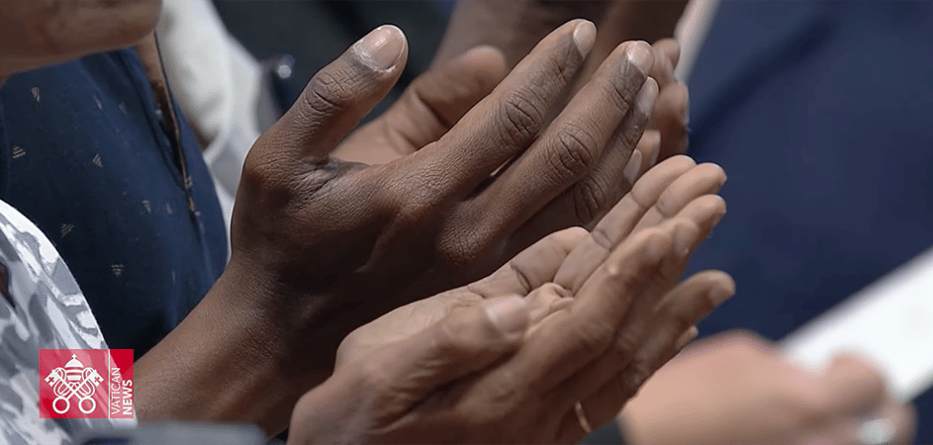After the quasi-festive nature of Laetare “Rejoice” Sunday last weekend, the Church now enters a more concentrated time of penance.
Historically called Passiontide, this period recalls the slow seclusion of the Lord Jesus from his public ministry as he begins for his Passion. These final days of Lent, therefore, call believers to a somber preparation for the Sacred Triduum, which is the three-day observance of the Passion, Death, and Resurrection of Jesus Christ.
This shift of focus can also be seen in the inner logic of the Beatitudes, the series of eight counsels given by the Lord Jesus as a summary of his way of love. The first three Beatitudes – poverty in spirit, sorrow over sins, and meekness – focus on our personal relationship with God.
After these three, however, we reach an intermission. The intermission is full of imagery about food. And so, the fourth Beatitude calls us to hunger and thirst for righteousness. But after this momentary pause, the way of the Beatitudes continues. And here, we see a crossover between the Beatitudes and Passiontide.
The fifth Beatitude tells us, “Blessed are the merciful, for they will be shown mercy.” After our own hunger and thirst, the flow of the Beatitudes moves and is now directed to our neighbor. After we know of our need for God and his mercy, we can now turn to our neighbor and share that mercy.
As Pope Francis teaches us: “It is not easy to entrust oneself to God’s mercy, because it is an abyss beyond our comprehension. But we must! … ‘Oh, I am a great sinner!’ All the better! Go to Jesus: He likes you to tell him these things! He forgets, He has a very special capacity for forgetting. He forgets, He kisses you, He embraces you and He simply says to you: ‘Neither do I condemn you; go, and sin no more’.”
And so, the acceptance of God’s mercy reflects our own poverty of spirit. As we empty ourselves of pride, we can hear and pick up the Lord’s commission to “go” and give this mercy to others. As we die to vengeance and an inflated ego, we are able to show compassion and gentleness to others.
This call to humility and mercy within the Beatitudes is echoed throughout the liturgical year and especially in Passiontide. In drawing closer to the Lord, who begins to remove himself from the public, we are summoned to remove ourselves from our own self-centeredness and arrogance. We are invited to be free from darkness and to give that freedom to others.
This is the path of mercy. It’s the way of Passiontide.
Pope Francis gives us a refreshing scene, as he describes the life-giving aspect of mercy: “God’s mercy can make even the driest land become a garden, can restore life to dry bones… Let us be renewed by God’s mercy, let us be loved by Jesus, let us enable the power of his love to transform our lives too; and let us become agents of this mercy, channels through which God can water the earth, protect all creation and make justice and peace flourish.”
And so, our challenge is whether we will imitate and re-live the Lord Jesus’ own vulnerability and dependency on the Father. Our mission is to embrace and generously give the rejuvenation of mercy to others.
Do we have the faith to trust completely in God? Do we accept and rely on his mercy? Do we trust him enough to abandon our pride and forgive our enemies?
Truth be told, we’d all be more forgiving if we had to wear our own sins on our shirts. This sober acknowledgement of our own weaknesses and faults is a reminder to us of God’s loving kindness and of his tenderness to us. It’s also a provocation to us to graciously pay forward this forgiveness and benevolence to others.
This is the beatitudinal way. It’s the path of Passiontide that leads to the Cross and Resurrection. As the Lord Jesus makes this journey, he calls all men and women to follow him. The Lord, therefore, beckons to us to be a people of mercy, to live a way of love, and to give to others what God has given to us.


















